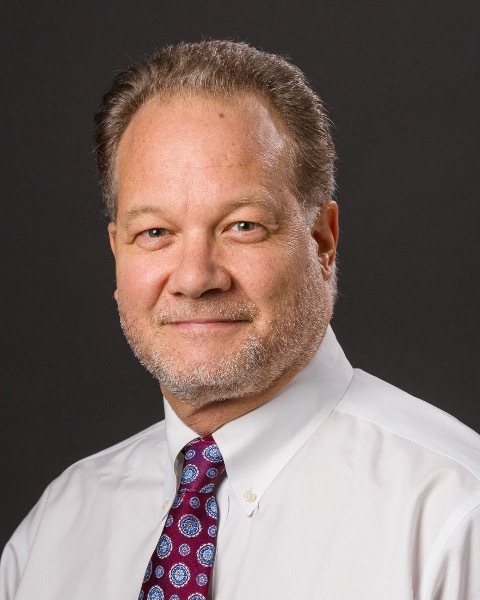
Opioid Overdose and the COVID-19 Pandemic
-
Register
- Non-Member - $39
- Regular Member - $29
- Retired - $29
- Early Career Physician - $29
- Resident - $19
- Student - $19
- Associate - $19
- ASAM Staff - Free!
- International Member - $29
- Emeritus Member - $29
- Provisional Member - $29
- Fellow Member - $29
- Honorary Member - $29
- CRT Member - $29

Opioid Overdose and the COVID-19 Pandemic
Recorded: Thursday, April 22, 2021 - Saturday, April 24, 2021
On-Demand Session
Overview
This 1-hour on-demand session from ASAM Virtual 2021 addresses the increase in opioid related deaths in 2020 with fentanyl being the main driver and its relation to the COVID-19 pandemic.
Most states in the USA have reported an increase in rates of opioid-related mortality in 2020, concomitant with the increasing COVID-19 infection-related deaths. The largest driver of fatal opioid overdoses (OD) is Fentanyl, a potent synthetic opioid agonist, usually found to be an adulterant in illicit opioids and other substances. In addition, COVID-19 infections have resulted in disproportionately high rates of mortality among patients with opioid use disorder (OUD) illustrating the social, economic vulnerabilities and health risks inherent in this population with these comorbidities. This focused session aims to further delineate the characteristics of these colliding epidemics as it impacts patients, access to treatments, and healthcare systems.
Most states in the USA have reported an increase in rates of opioid-related mortality in 2020, concomitant with the increasing COVID-19 infection-related deaths. The largest driver of fatal opioid overdoses (OD) is Fentanyl, a potent synthetic opioid agonist, usually found to be an adulterant in illicit opioids and other substances. In addition, COVID-19 infections have resulted in disproportionately high rates of mortality among patients with opioid use disorder (OUD) illustrating the social, economic vulnerabilities and health risks inherent in this population with these comorbidities. This focused session aims to further delineate the characteristics of these colliding epidemics as it impacts patients, access to treatments, and healthcare systems.
The target audience for this intermediate level session includes physicians, nurse practitioners, physician assistants, other clinicians, researchers, residents, fellows, students, and counselors.
This session addresses the following ACGME Competencies: Patient Care, Medical Knowledge, Systems Based Practice.
Learning Objectives
Upon completion, learners will be able to:
- Describe the trends in opioid overdose both before and during the COVID-19 pandemic
- Demonstrate an increased knowledge in the role of a healthcare provider in using MOUD to reduce opioid overdoses
- Describe the epidemiology and pharmacology of Fentanyl and its impact on the effectiveness of medications for OUD
Fees
| Rate Description | Rate |
| ASAM Member | $29 |
| Non-Member | $39 |
| Associate Member | $19 |
| Resident Member* | $19 |
| Student Member* | $19 |
*Residents, Fellows-in-training, Interns, and Students must join ASAM to receive a discounted registration rate. Click here to become an ASAM member. National and Chapter membership dues apply. There is no charge for Students to become a Member, but verification of student status is required.
Membership Question? Call ASAM at 1.301.656.3920, email us, or view the ASAM website for more information.
Refunds & Cancellations
All ASAM e-Learning Center refund requests must be made in writing to education@asam.org within 90 days of purchase. Those requesting refunds for courses that are in progress will receive partial refunds or e-Learning Center credit. Automatic full refunds will be made for any course with a live-course component that has been cancelled.
Registration Deadline: 04/30/2024
Course Instructions
- Click the "Contents" tab and select "View On-Demand Recording". After viewing the entire video, return to the Contents tab.
- Click "Complete Post Test" to answer quiz questions. You will have 10 attempts and must get at least 2 out of 3 questions correct. After completing the quiz, return to the Contents tab.
- Click "Complete Evaluation" to answer evaluation questions. Scroll down on all questions, there are answers that expand past the size of the window.
- Click the button “Claim Credits” in the box titled “Claim Credits & Certificate." Choose the type of credit and click submit. Click the button “View/Print Certificate” to save or print your certificate. If you ever lose your certificate, you can come back to the ASAM e-Learning Center and view it on your transcript (found in the Dashboard).
Need Assistance?
If you have are experiencing any log in issues, cannot access a course, need assistance claiming credit, or have other questions or concerns, please e-mail Education@asam.org for assistance.
For learners who may have difficulty typing, moving a mouse or reading, Essential Accessibility is an application available for use to assist.

Geetha A. Subramaniam
MD, DFAPA, DFAACAP
Geetha A. Subramaniam, MD, DFAPA, DFAACAP is the Deputy Director of the Center for Clinical Trials Network, at NIDA. In this role, she has been instrumental in developing research projects in a variety of topic areas, including addressing the prevention of substance abuse in adolescents, prevention and intervention of prescription stimulant misuse in youth. Previously, she was a full-time faculty member in the Division of Child Psychiatry at Johns Hopkins School of Medicine and the Associate Medical Director of Mountain Manor Treatment Center, Baltimore, MD, where she led clinical trials with adolescents with SUD and served as a preceptor to residents and fellows. She distinguished herself as a clinical and research expert in the assessment and treatment of adolescents and young adults with opioid use disorders. She is ABPN certified in General, Child, and Adolescent, and Addiction Psychiatry and a Distinguished Fellow of both the American Psychiatric Association and the American Academy of Child and Adolescent Psychiatry.

Sandra D. Comer
PhD
Sandra Comer PhD is Professor of Neurobiology in the Department of Psychiatry at Columbia University and Research Scientist VI at the New York State Psychiatric Institute. She graduated summa cum laude from Vanderbilt University in 1987. Following PhD studies at the University of Michigan and post-doctoral research at the University of Minnesota, Dr. Comer joined Columbia University in 1993, where her research focus has been on the development and testing of novel approaches to the treatment of opioid use disorders. She is Director of the Opioid Laboratories in the Division on Substance Use Disorders and runs a very active research program devoted to examining various aspects of the abuse liability of opioids.
Dr. Comer served on the Institutional Review Board at NYSPI for 10 years, so she is familiar with the regulatory requirements of research with human volunteers. In addition, she is an active member of the College on Problems of Drug Dependence, the longest standing group in the United States addressing problems of drug dependence and abuse. She served as Chair of the Program Committee, was elected President in 2015-2016, and currently serves as the Public Policy Officer of CPDD. She is a member of the World Health Organization Expert Advisory Panel on Drug Dependence, gives lectures and presentations to the U.S. Food and Drug Administration, reviews grant applications for the National Institutes of Health, and mentors both pre- and post-doctoral students. She has published over 170 papers, chapters, and books on issues related to substance use disorders.

David A. Fiellin
MD, FASAM
David A. Fiellin, MD, is a Professor of Medicine, Emergency Medicine and Public Health at Yale where he is Director of the Yale Program in Addiction Medicine. He is an internist board certified Addiction Medicine. His NIH-funded research is on the interface between substance use and general medical settings including office-based practice, primary care, Emergency Department and HIV specialty settings. He is Co-Editor of the ASAM textbook, Principles of Addiction Medicine, 4th, 5th and 6th Editions, and on the Editorial Boards of 4 addiction specialty journals.

Andrew Herring
MD
Dr. Andrew Herring graduated from Harvard Medical School and completed his residency in emergency medicine at Highland Hospital—Alameda Health System (AHS) in Oakland, CA where he continues as an attending emergency physician and Director of Research. He is the AHS Medical Director of Substance Use Disorder Treatment and the past Medical Director of the AHS Functional Restoration Pain Clinic. Dr Herring has led national efforts to transform hospital-based care for substance use disorders and his work has been featured in local and national press including the New York Times, Los Angeles Times, and National Public Radio. Dr. Herring co-founded and is a PI at CA BRIDGE, one of largest state-level efforts to promote access to medication for opioid use disorder in the hospital settings. Dr. Herring’s research has been funded by the National Institutes of Health (NIH), the Patient-Centered Outcomes Research Institute (PCORI) and has been published in numerous journals including JAMA Open and Annals of Emergency Medicine; his work focuses on treatment of substance use disorders and pain management. He is a lead investigator for NIDA funded studies. Dr. Herring is board-certified in Emergency Medicine, Addiction Medicine, and Pain Medicine and is a Volunteer Assistant Clinical Professor at the University of California, San Francisco.
No relevant financial relationships
CME, CE, CEU and Other Credit Types

ACCME Accreditation Statement
The American Society of Addiction Medicine is accredited by the Accreditation Council for Continuing Medical Education (ACCME) to provide continuing medical education for physicians.
AMA Credit Designation Statement
The American Society of Addiction Medicine designates this enduring material for a maximum of 1 AMA PRA Category 1 Credits™. Physicians should claim only the credit commensurate with the extent of their participation in the activity.
American Academy of Physician Assistants
This activity has been reviewed by the AAPA Review Panel and is compliant with AAPA CME Criteria. This activity is designated for 1 AAPA Category 1 CME credits. Approval is valid from 5/26/2021 to 5/26/2022. PAs should only claim credit commensurate with the extent of their participation. AAPA reference number: CME-202755.
NAADAC, the Association for Addiction Professionals
This activity has been approved by the American Society of Addiction Medicine, as a NAADAC Approved Education Provider, for educational credits. NAADAC Provider #295, ASAM is responsible for all aspects of the programming.
California Association for Drug/Alcohol Educators (CAADE)
This educational program is approved by CAADE: #CP40 999 1222.
California Association of DUI Treatment Centers (CADTP)
This educational program is approved by CADTP: #205.
California Consortium of Addiction Programs and Professionals (CCAPP)
This educational program is approved by CCAPP: #OS-20-330-1222.
Continuing Education Credits (CEUs)
Non-physician participants will receive a certificate of attendance upon completion of the activity and an online evaluation confirming their participation. Participants should submit his/her certificate of attendance to their professional organization/institute.
Maintenance of Certification (MOC) or Continuing Certification Programs (CCP)
American Board of Medical Specialties (ABMS)
Through the American Board of Medical Specialties (“ABMS”) ongoing commitment to increase access to practice relevant Continuing Certification Activities through the ABMS Continuing Certification Directory, The ASAM Virtual.2021 has met the requirements as a MOC Part II CME Activity (apply toward general CME requirement) for the following ABMS Member Boards: Allergy and Immunology, Anesthesiology, Colon and Rectal Surgery, Family Medicine, Medical Genetics and Genomics, Nuclear Medicine, Physical Medicine and Rehabilitation, Plastic Surgery, Preventive Medicine, Psychiatry and Neurology, Radiology, Thoracic Surgery, Urology
American Board of Preventive Medicine (ABPM)
The American Board of Preventive Medicine (ABPM) has approved this activity for a maximum of 1 credit towards ABPM MOC Part II requirements.
American Board of Anesthesiology (ABA)
This activity contributes to the CME component of the American Board of Anesthesiology’s redesigned Maintenance of Certification in Anesthesiology TM (MOCA®) program, known as MOCA 2.0®.
American Board of Pediatrics (ABP)
Successful completion of this CME activity, which includes participation in the activity, with individual assessments of the participant and feedback to the participant, enables the participant to earn a maximum of 1 MOC point in the American Board of Pediatrics’ (ABP) Maintenance of Certification (MOC) program. It is the CME activity provider’s responsibility to submit participant completion information to ACCME for the purpose of granting ABP MOC credit.
American Board of Internal Medicine (ABIM)
Successful completion of this CME activity, which includes participation in the evaluation component, enables the participant to earn up to 1 Medical Knowledge MOC point in the American Board of Internal Medicine’s (ABIM) Maintenance of Certification (MOC) program. Participants will earn MOC points equivalent to the amount of CME credits claimed for the activity. It is the CME activity provider’s responsibility to submit participant completion information to ACCME for the purpose of granting ABIM MOC credits.
American Board of Surgery (ABS)
Successful completion of this CME activity, which includes participation in the evaluation component, enables the learner to earn credit toward the CME and/or Self-Assessment requirements of the American Board of Surgery’s Continuous Certification program. It is the CME activity provider's responsibility to submit learner completion information to ACCME for the purpose of granting ABS credit.
American Board of Psychiatry and Neurology (ABPN)
Successful completion of this CME activity can be used to satisfy the American Board of Psychiatry and Neurology’s (ABPN) CME requirement for Maintenance of Certification program.
American Board of Addiction Medicine (ABAM)
Successful completion of this activity can be used to satisfy the American Board of Addiction Medicine (ABAM) Tmoc credit requirements.
Royal College of Physicians and Surgeons of Canada (RCPSC)
Royal College Fellows can use participation in Accredited Continuing Medical Education to earn Section 3 Credits.
CME Committee, Program Planning Committee, and Faculty Disclosure Information
In accordance with disclosure policies of ASAM and the ACCME, the effort is made to ensure balance, independence, objectivity, and scientific rigor in all CME activities. These policies include mitigating all possible relevant financial relationships with ineligible companies for the Planning Committees, CME Committee, MEC, and Faculty. All activity Planning Committee members and Faculty have disclosed relevant financial relationship information. The ASAM CME Committee has reviewed these disclosures and determined that the relationships are not inappropriate in the context of their respective presentations and are not inconsistent with the educational goals and integrity of the activity.

